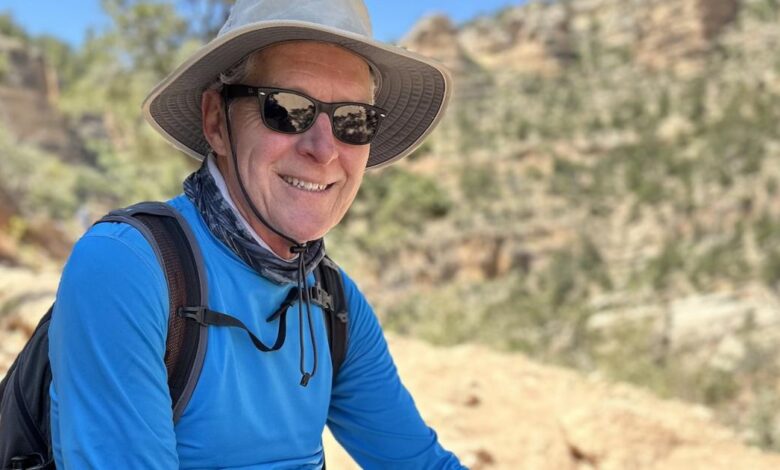Owens Corning retired sustainability chief: 5 tips for accomplishing more faster

The first CSO at a publicly traded company in the U.S. was appointed in 2004, nearly 20 years ago. Since then, the field has grown dramatically; today there are 183 CSOs at U.S. publicly traded companies. CSOs who have held that title for a decade or more may be starting to think about the end of their corporate careers.
As cofounder of Sustainability Veterans, a group I started with former EMC CSO Kathrin Winkler for corporate sustainability veterans to compare notes on ways to make a difference as they transition out of their business roles, I think it’s useful for retired CSOs to reflect on how they can use their intellectual, experiential and social capital to shape the field and advance sustainability progress.
I explored this question (and others) with Frank O’Brien-Bernini, who recently retired after 38 years at Owens Corning, 15 as CSO. O’Brien-Bernini took a break from his post-career travels through the American Southwest to share his thoughts on why considering your successor’s success should be your biggest achievement, why advocacy is more important than mentorship and how sustainability professionals can help the field accomplish more, faster.
Ellen Weinreb: You recently wrote a reflection on your 38-year career with Owens Corning. What were your biggest lessons as a CSO?
Frank O’Brien-Bernini: There are so many things to share, but I’ll stick with five big lessons: First, advocate for what you believe in, especially when others don’t. It’s hard, and it might make you unpopular, but it’s important. Find peace with that.
Second, find and live your purpose: Work/life integration is much more satisfying than work/life balance.
Third, set company goals consistent with what the world needs from you, and expects of you, not what you think you can do. If really smart people in your company think the goals are unachievable, you’re in the right zone. The fourth lesson is the flip side of that coin: Celebrate successes along the way. The kind of change you seek may be a decades-long journey, and acknowledging milestones achieved along the way will build momentum.
Finally, recognize the contributions of folks outside the direct sustainability team. If you project the reality that the entire company is the sustainability team, you’re doing it right.
Weinreb: You have said that succession planning was a big part of your retirement thinking. How did you approach this at Owens Corning?
O’Brien-Bernini: I spent many years discussing my inevitable retirement with our CEO, Brian Chambers, and I would always conclude those conversations by promising that I would not retire until we could look each other in the eye and agree that we had a great, ready-now successor.
For many companies, the keys to future success will be quite different for the incoming CSO than they were for the outgoing one.
I considered it my single biggest sustainability achievement to find a successor who could have wild success in the role I was leaving. That meant picking a successor whose skills and capabilities aligned with what needs to get done now, not what created success in the past. For many companies, the keys to future success will be quite different for the incoming CSO than they were for the outgoing one. (Editor’s note: O’Brien-Bernini’s successor is David Rabuano, a 34-year Owens Corning insider who has held roles in operations, product and supply chain sustainability, toxicology, and corporate medical and wellness, among others.)
Weinreb: You have shared with me that you have learned from mentors and sponsors, and how important they are to you. Unfortunately, there aren’t many formal structures that teach people how to be a good mentor. What’s your advice for CSOs who want to pay it forward by becoming mentors after they leave the corporate world?
O’Brien-Bernini: Mentors (and advocates) have played a big role in my development. I take to heart the words of the former Owens Corning CEO Dave Brown, who famously said, “The way you convince people that you really care about them is to actually care about them.” Both simple and profound, this statement still echoes in my head at just the right times.
When it comes to becoming mentors, I would challenge people in my position to think more about advocacy than mentoring. While mentoring is a passive transfer of knowledge or wisdom — a trust that what you do will help your mentee succeed — advocacy goes beyond this, requiring that you take more proactive ownership for their career progression and success. This has a very direct application inside a company where you wield the power (or influence) to put people in the roles they are striving for.
Weinreb: One of the ways you are giving back in retirement is through board service. Why is board service important to you, and how are you contributing?
O’Brien-Bernini:Board service provides a very real mechanism for me to leverage my earned skills and expertise to accelerate the sustainability progress of other companies. My goal is to accelerate progress by sharing in-the-trenches learned strategies and tactics (and pitfalls).
Weinreb: Since starting your career in 1983, you have seen a lot of progress in sustainability, but you also point out that too many companies have been repeating the mantra “we need to do more, faster” year after year. What’s your take on achieving that?
O’Brien-Bernini: If there’s one thing we learn as CSOs, it’s that investing deep thought in setting ambitious goals, and then putting in place the initiatives for achieving them, works — whether it’s for a company or for yourself.




